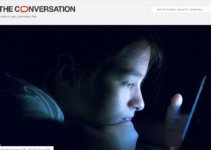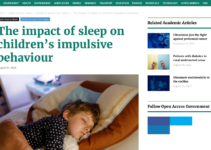The Importance of Sleep and its Impact on Cognitive Health and Cardiovascular Disease
Sleep is a fundamental aspect of human health, and its impact on various aspects of well-being cannot be understated. Recent studies have shed light on the relationship between sleep, cognitive function, and cardiovascular health, providing valuable insights into the importance of sleep for overall well-being.
One study, conducted by researchers examining the combination of sleep and physical activity on cognitive function, found surprising results. Previous studies had primarily focused on a snapshot in time, and it was believed that regular physical activity might counteract the long-term effects of lack of sleep on cognitive health. However, this study revealed that regular physical activity may not always be sufficient to counter these effects. The findings emphasize the need to consider both sleep and physical activity together when thinking about cognitive health.
In the realm of sleep disorders, insomnia is a prevalent issue affecting many individuals. Previous research has shown that the administration of CBD or the combination of CBD and melatonin can improve sleep quality in patients with insomnia. Low doses of CBD have been found to be safe and effective in improving sleep quality, although the effects do not exceed those of 5 mg melatonin.
Another sleep disorder, obstructive sleep apnea, has long been associated with increased cardiovascular risk. A recent study delved into the mechanism that links obstructive sleep apnea and cardiovascular disease. The research revealed that reduced blood oxygen levels due to interrupted breathing in individuals with obstructive sleep apnea contribute to an increased cardiovascular risk. This finding further emphasizes the importance of addressing and treating sleep disorders to mitigate the risk of cardiovascular issues.
The impact of sleep on adolescents' health is also a topic of interest. Poor sleep habits in teenagers have been linked to various health problems, including obesity, depression, anxiety, and learning disorders.[0] A study conducted by Brigham Young University found that certain activities before bed, such as spending time with friends, viewing social media, or snacking, can reduce sleep duration in teenagers.[1] On the other hand, engaging in activities that require mental or physical effort, such as doing homework or playing sports, was associated with earlier sleep times.[0] The study highlights the importance of instilling healthy sleep habits in adolescents to promote their overall health and well-being.[2]
Moreover, sleep disparities related to living environment and race or ethnicity have also been identified. Disparities in sleep duration patterns were found across different racial and ethnic groups, with Black and Hispanic individuals more likely to have worse sleep patterns overall. However, it was interesting to note that only white participants had significantly less sleep when exposed to poorer neighborhoods. This finding raises questions about the underlying factors contributing to these disparities and highlights the need for further research and interventions to address sleep disparities across different populations.
The impact of sleep on cardiovascular health is a significant area of study. A study published in the Journal of the American Heart Association found that adults who fall asleep at different times and don't sleep a regular number of hours per night are at a higher risk for hardening of the arteries and heart attack or stroke.[2] Current guidelines recommend adults to get seven to nine hours of sleep per night to maintain heart health.[3] Sleep disturbances, such as obstructive sleep apnea, have been shown to increase the risk of cardiovascular disease and related death. Understanding the mechanisms behind these associations can help inform preventive strategies and interventions to improve cardiovascular health.[4]
In conclusion, sleep plays a crucial role in cognitive function and cardiovascular health. The findings from various studies emphasize the need to prioritize healthy sleep habits and address sleep disorders to promote overall well-being. Further research is needed to explore the complex relationship between sleep and various aspects of health and to develop targeted interventions to improve sleep quality and mitigate the associated risks.
0. “Snooze or lose: BYU study says nighttime routines impact teen …” news.byu.edu, 29 Jul. 2023, https://news.byu.edu/intellect/snooze-or-lose-byu-study-says-nighttime-routines-impact-teen-sleep-duration
1. “Study shows link between adolescent sleep and general health” www.aninews.in, 29 Jul. 2023, https://www.aninews.in/news/health/study-shows-link-between-adolescent-sleep-and-general-health20230625181455
2. “Good Sleep is Key to Heart Health | Health.mil” www.health.mil, 29 Jul. 2023, https://www.health.mil/News/Dvids-Articles/2023/05/30/news445735
3. “Kentucky is one of the most sleep-deprived states | Kentucky …” www.somerset-kentucky.com, 29 Jul. 2023, https://www.somerset-kentucky.com/kentucky/kentucky-is-one-of-the-most-sleep-deprived-states/article_43432124-09ef-11ee-bf10-abfe03a21063.html
4. “NIH-Funded Study Explains Link to Increased Cardiovascular Risks …” goldrushcam.com, 29 Jul. 2023, https://goldrushcam.com/sierrasuntimes/index.php/news/local-news/48142-nih-funded-study-explains-link-to-increased-cardiovascular-risks-for-people-with-obstructive-sleep-apnea





